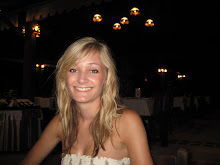Similar to Fire Radio, Talbot FM has a much younger target audience of 16-30 year olds and covers the South East Dorset area; factors which we considered throughout our broadcasts. Fire Radio has a relatively young audience and the news they broadcast is typically aimed at young people, concerning topics like music, graduate jobs and items which will impact on young people. As editor I started the day by assessing news worthiness of ideas, delegating stories and organising the running order. Good quality news must be relevant to listeners so we localised the national stories and included some local stories, such as the re-launching of a community project, the protest on the Wessex Way, and road works on the A338.
Considering the young target audience, a story concerning the Brit awards would be entertaining. It is important to draw the listener in immediately, therefore we took a fresh angle on this story and looked at how the awards had affected album sales rather than simply list who won what at the ceremony, which other local radio stations were doing. Similarly, the McQueen inquest would have been interesting to fashion students, and we spoke to the design school at Bournemouth Arts College University to localise the story.
Most of our stories in this first bulletin were local or national with a local angle, for example the national unemployment figures were broken down regionally. One of the BBC’s fundamental editorial guidelines is accuracy; therefore we checked the stories we used were correct using many reliable sources and verified facts by using official unemployment figures.
We were fully prepared for our first broadcast; the bulletin was presented clearly and we did not encounter any problems. We had a few voice clips and sports news included in the broadcast. Overall I was very pleased with this bulletin:
Friday, 19 February 2010
Subscribe to:
Post Comments (Atom)

No comments:
Post a Comment